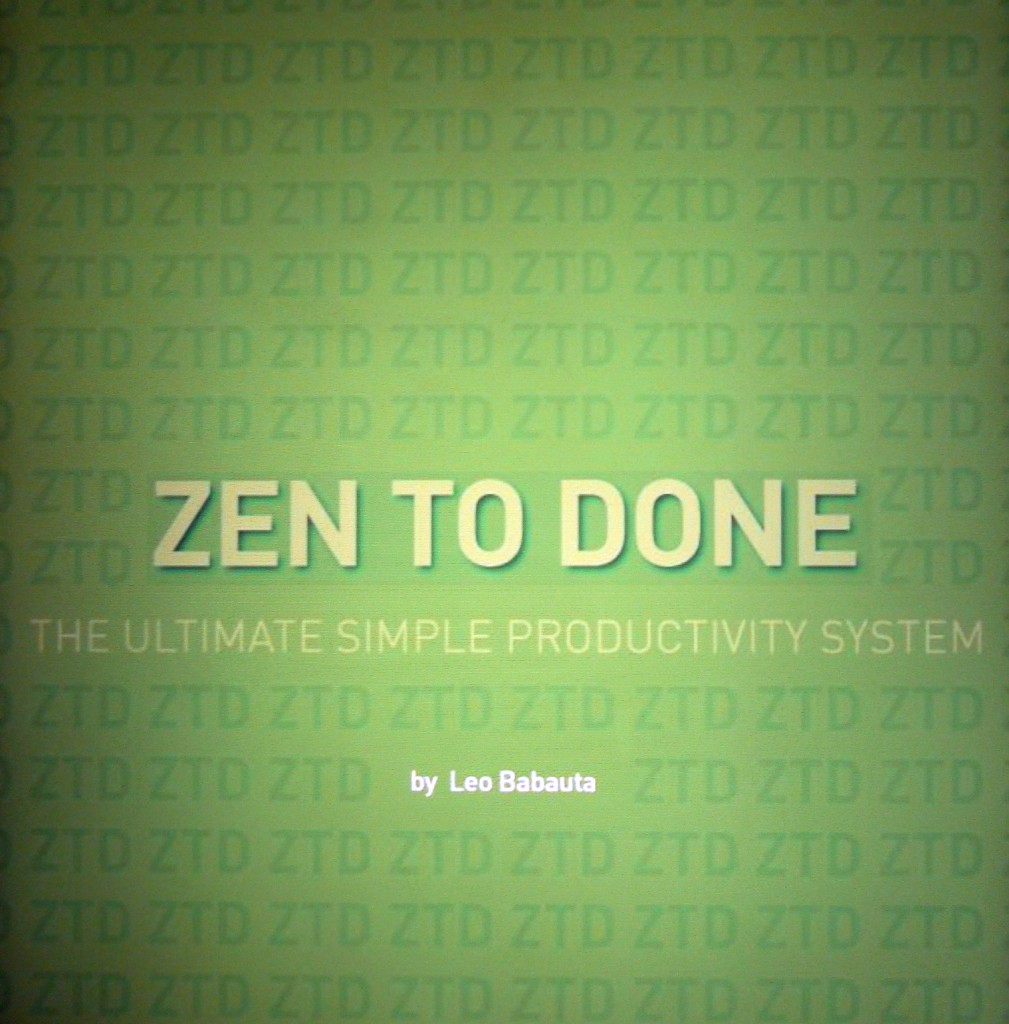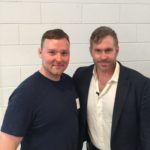If you’re familiar with the concept of minimalism, you’ve probably come across Zen Habits, the blog of Leo Babauta. I’d read a numer of Leo’s posts in the past and though I don’t see myself following some of his lifestyle choices, I appreciate his honesty and explanations of the principles he lives by.
I was recently scanning through my Amazon.com wish list and I came across Getting Things Done (GTD) by David Allen. I haven’t read the book but have heard good reviews. What held me back from buying it were some criticisms that the GTD was less goal-focused and didn’t help you prioritize tasks of lesser or greater importance. I’ll have to get the book and give it a thorough read-through to asess this for myself, but in the meantime I came across Zen to Done (ZTD) Leo Babauta’s take on productivity and time management, inspired by GTD. Knowing Leo’s writings on minimalism I knew that his book would be a valuable and very focused system. For $4.99 for the Kindle edition, it was a very small but worthwhile investment.
ZTD focuses on forming 10 habits: Collect, Process, Plan, Do, Simple Trusted System, Organize, Review, Simplify, Set Routines, Find Your Passion. Another criticism of GTD and similar systems is that they expect readers to form a multitude of new habits at once, which often leads to failure. Leo however encourages readers not to attempt more than 2-3 new habits per month and states that not all of these habits are critical to productivity. In the spirit of minimalism and simplicity, he suggests the first four habits: Collect, Process, Plan, Do, as a bare-bones but highly effective productivity system. After having read the book I plan to develop all ten habits over the course of the coming months and this is made easier by the fact that I already engage in some of these habits and other habits are really refinements of those previously learned, so their adoption doesn’t require learning a whole new behavior, just modifying an existing one.
A key component of ZTD and many productivity systems is the “collect” phase. Each of us have goals, tasks and ideas that come to us over the course of the day. Although we can’t do everything at once, we can record all of this incoming information in one place to process, plan for and execute later. The device I use for the “collect” phase is my iPhone, specifically the Clear and Calendar apps. Until recently I used to put all of my tasks in my calendar, even if it wasn’t a time sensitive event. I found that it was far too easy to postpone doing these things by simply moving it back on the calendar. Since discovering the Clear app I now put these unscheduled tasks into specific lists. In Clear I have a list for “today” and “someday” as well as lists for the three goals I’ve chosen for the year. Each night I review my lists and add tasks to my “today” list. These tasks are usually smaller actions that advance me towards achieving my goals. One of my main goals is to write 100 pages for my PhD dissertation by next August. A task that helps me with this goal is reading a book on my dissertation topic. Since I won’t be reading the book all in one day, I set “read one chapter” of a book as a “today” task. Over a period of several weeks I will have completed the book. Once that task is completed I can check it off my list and move on to other tasks that advance me towards my goal.
Another thing that appeals to me about Leo’s book is his emphasis on simplifying (one of the habits). Many productivity systems view people as machines that are to be tuned to the highest level of productivity possible. What gets lost in the mix is whether the additional tasks you’re efficiently accomplishing are worth your time and effort. Since moving to Poland in August I let go of most of my obligations in California. When I return I could take many of those obligations on again, but after assessing what is really important to me and how much work achieving my goals will take, I don’t have any desire to take on old or new obligations. I’d rather focus my efforts on several goals that mean the most to me. The quality of your achievement beats a large quantity of accomplishments.
If you’ve never really taken time to set definite goals for yourself because you didn’t know where to start, I also recommend that you download Mark Manson’s Life Purpose Guide on PostMasculine.com in which he outlines a great goal setting exercise that you can complete in about an hour. I went through this exercise several months ago and for the first time in my life I was able to clearly see what my goals were and what it would take to achieve them. If you dedicate some time to assessing your goals through Mark’s advice and then organize your daily routines and tasks through Zen to Done, you’ll be motivated to success like you never thought before.
I highly recommend Zen to Done as the most straightforward and easily utilized productivity system that I’ve come across. Even if you don’t have a lot of personal experience with goal setting, time management and planning, Zen to Done is the best synthesis of the well-known systems, streamlined and enhanced with Leo Babauta’s insights and approach.
If you’ve read Zen to Done, what did you think? What’s your productivity routine? Let us know in the comments below.





